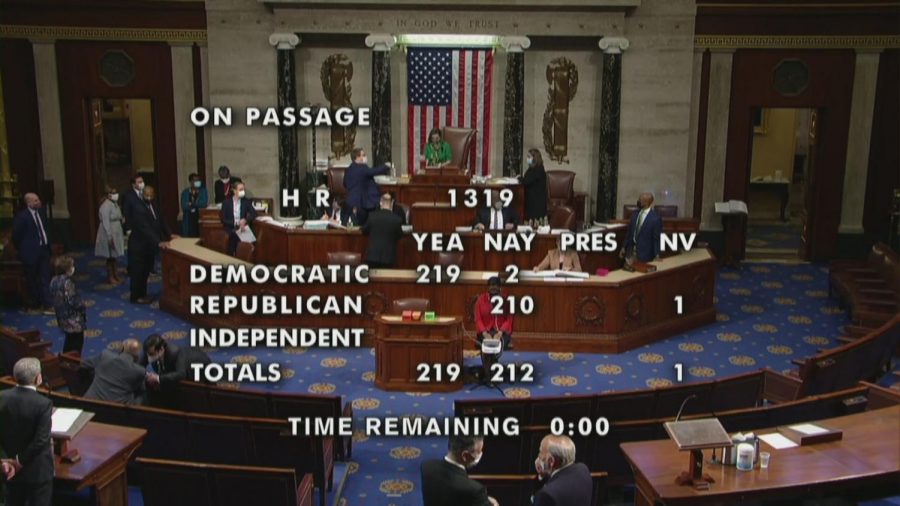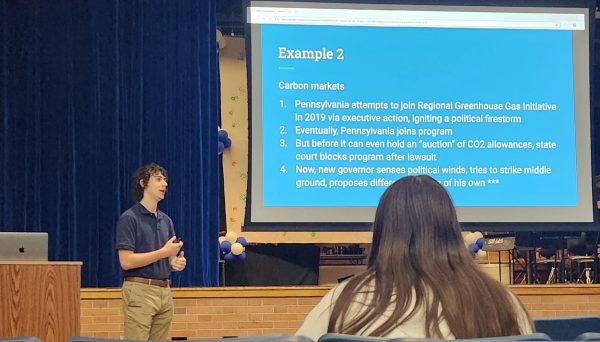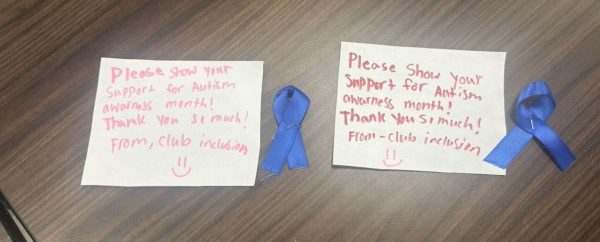House passes $1.9 trillion COVID-19 relief bill
March 2, 2021
The House voted on Feb. 27 to pass the $1.9 trillion COVID-19 relief bill proposed by President Joe Biden. This comes just days after the U.S. passed the milestone of 500,000 deaths due to the coronavirus. It is the first step in providing another dose of aid to the nation.
The House voted 219 to 212 to approve the bill, with every Republican voting against it and two Democrats joining them on a near party line split. The bill will include $1,400 direct payments, a $400-a-week federal unemployment bonus, a per-child allowance of up to $3,600 for one year and billions of dollars to distribute the coronavirus vaccines and to assist schools and local governments. It also provides billions for COVID-19 vaccines and testing, renters, food producers and struggling industries like airlines, restaurants, bars and concert venues.
“We have no time to waste,” President Biden said. “We act now — decisively, quickly and boldly — we can finally get ahead of this virus. We can finally get our economy moving again. People in this country have suffered far too much for too long.”
The bill is now in the hands of the Senate, where the package will remain mostly intact aside from a provision to raise the minimum wage that will likely be removed. The Democrats are using a process that does not require Republican support, so the rest of the package will be able to move forward.
If the bill is enacted, it will be the sixth such bill to provide aid to American citizens from the federal government.
Earlier Saturday, Speaker Nancy Pelosi, D-Calif., speaking on the House floor, called the legislation “transformative” at mitigating poverty.
“We are putting money in workers’ pockets,” Pelosi said.“As President Biden has said, help is on the way.”
Republicans disagree with passing the bill, stating that the bill is too expensive, there isn’t enough being spent to reopen schools and would give too much to Democratic constituencies such as labor unions and would funnel money to Democratic-run states that they suggested did not need it.
Recent polls show that the package is popular with most Americans, earning 66 percent support in an Economist/YouGov study and 76 percent support in a Morning Consult/Politico survey.












